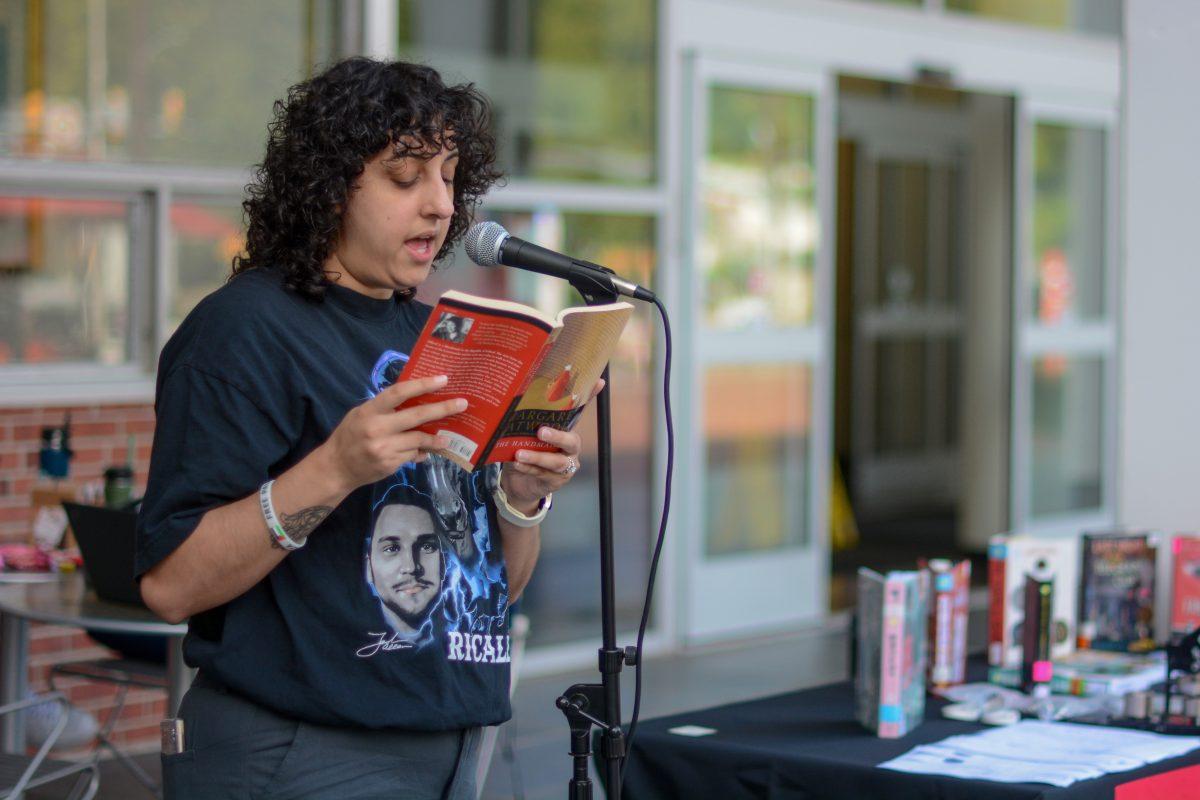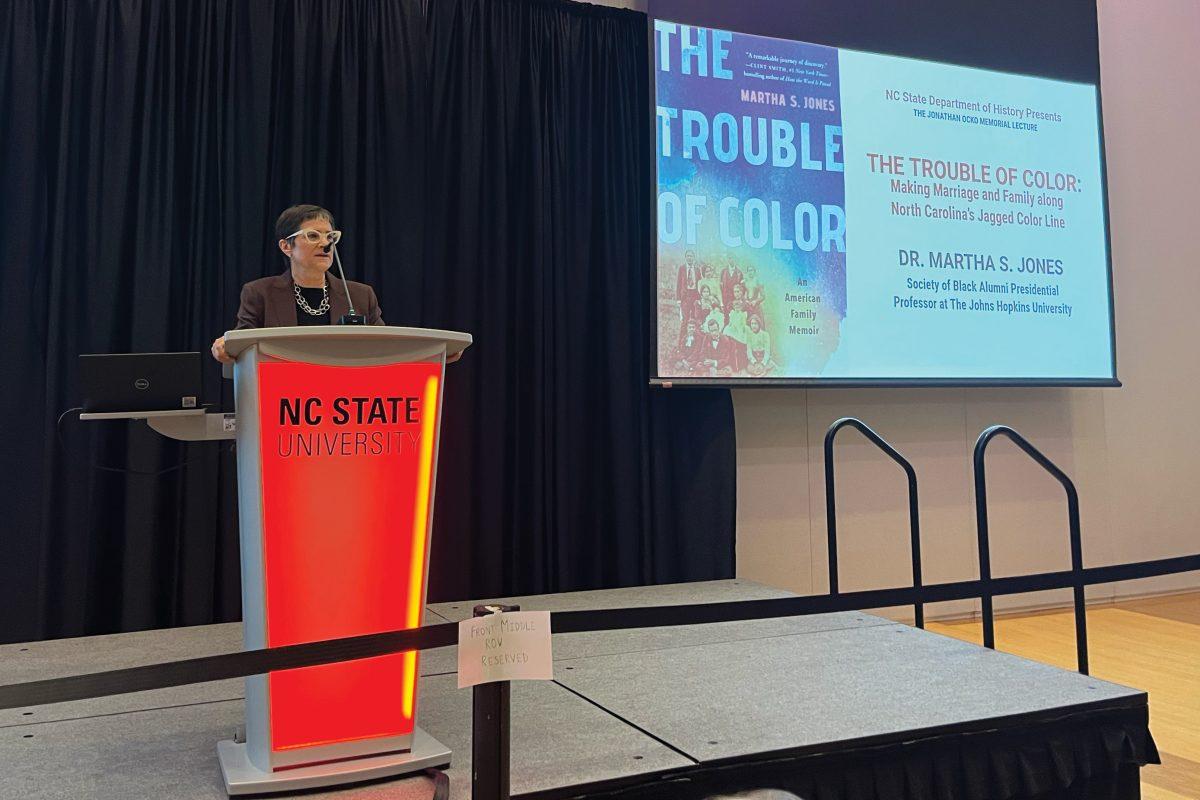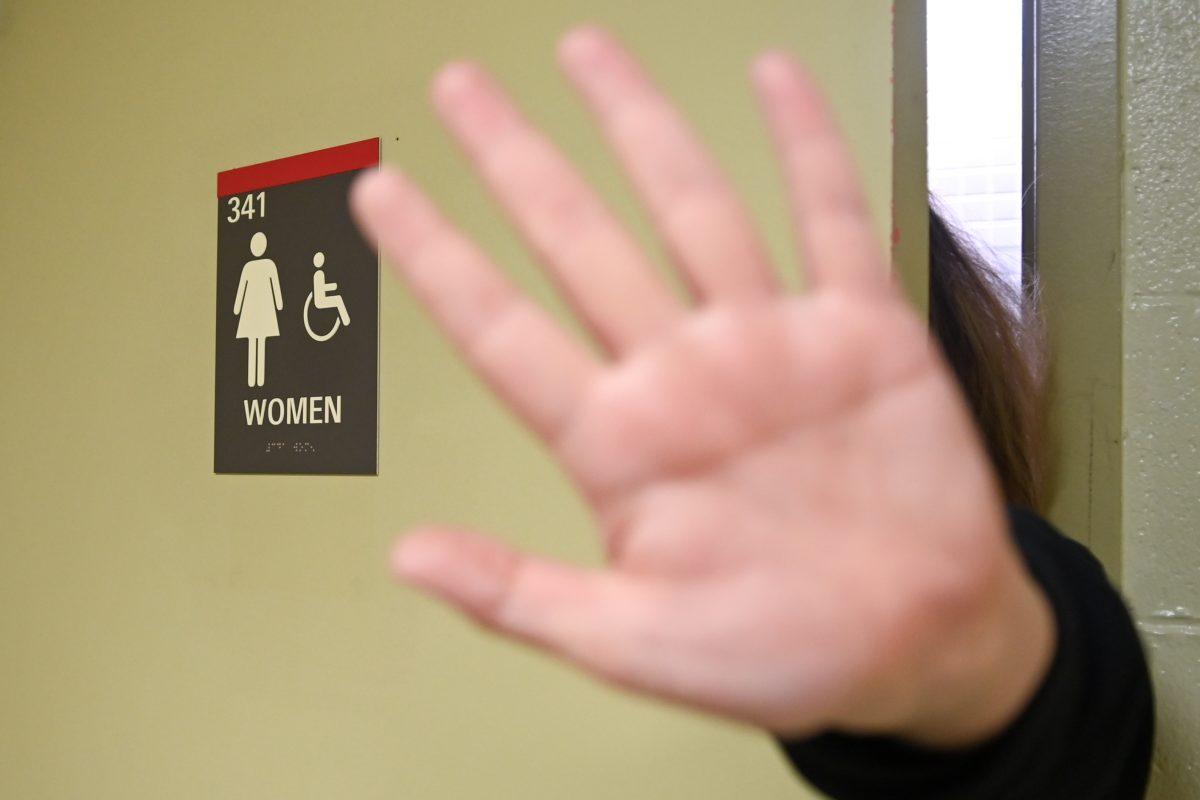Each year, the American Library Association’s Office for Intellectual Freedom creates a list reporting the top challenged books across the country. In 2023, seven out of 10 titles had LGBTQ+ content listed as one of the reasons for challenging.
“Gender Queer,” a graphic novel documenting the author’s journey of self-identity, topped the list with 106 challenges. The book was removed from shelves in Wake County libraries after complaints that the book was “sexually explicit.”
While the book returned to shelves after pushback from librarians and an update to the banning policy, the book’s removal serves as a reminder of the proximity of book bans.
D.H. Hill Jr. Library and the Media and Education Technology Resource Center, or METRC,held a book panel discussion and read-out for Banned Book Week on Thursday.
The panel featured state Representative Julie von Haefen, 2023 School Librarian of the Year Julie Stivers, UNC-Greensboro Assistant Professor of Library Sciences April Dawkins and Wake County Board of Education District 5 Representative Lynn Edmonds. Scott Summers, the assistant director of the METRC at the College of Education, moderated the panel discussion.
The panelists discussed current legislation, challenged book review processes and the impact of administration and library budgets on providing representative and informative books to students.
Another major topic of discussion was the uptick in challenged and banned books within the past several years that have disproportionately affected books written about or including LGBTQ+ characters. Summers said the increase requires a new way of looking at Banned Book Week.
“We need to update the way we’re talking about Banned Book Week to talk about this ongoing, orchestrated attack on the freedom to read,” Summers said. “It’s still about ‘To Kill a Mockingbird’ in a way, but it’s much more about books that are published recently by people of color, about people of color, about LGBTQIA+ people, about the history of our country and how we are trying to defend its place on the shelf against people saying, ‘Well, because I am not a fan of it, or I don’t want people to read it, it should be banned for everyone.’”
Despite the increase in challenges, Summers said most challenged books remain unbanned.
Recent North Carolina legislation, the Parents’ Bill of Rights, restricts discussing information about gender identity, sexual activity or sexuality in fourth grade and below.
“What’s happening as a result of this is each school district is interpreting this law differently because the Department of Public Instruction has provided no direction,” Dawkins said. “In some districts, what you’re finding is any book that deals with LGBTQ issues — like two dads in a book for a family — there’s no sexual content in this book, there are just two dads, and so, therefore, that book is being pulled.”
Stivers said books that include LGBTQ+ characters are both beneficial for representation and education.
“Having inclusive literature is like a win-win for every student,” Stivers said. “And we can’t include all the great stories unless we are authentically representing the BIPOC and queer and disabled authors, right? Then we don’t have all the great stories — inclusive literature is not medicine, it’s food.”
The library and METRC also held a banned book read-out outside of D.H. Hill Jr. Library on Sept. 23. Staff and students selected a banned book to read aloud to onlookers and students walking to class. All of the books read were banned or challenged for the first time before the uptick in challenges in 2020.
Lara Fountaine, a community engagement librarian, took time after the reading concluded to discuss the American Library Association’s top ten challenged books and said the event highlights how the climate of banned books has changed in recent years.
“People are attacking those books because there’s an attack on queer people,” Fountaine said. “And they’re trying to make queerness invisible, is what I feel like, and trying to essentially push it out of existence, which is not something that you can do, right? And then also, there’s this argument and this reasoning that it’s to protect children, but it’s not protecting children. It’s harming children because there are so many queer folks who talk about how seeing themselves in books at a young age helped them discover who they are and help them through difficult times.”












